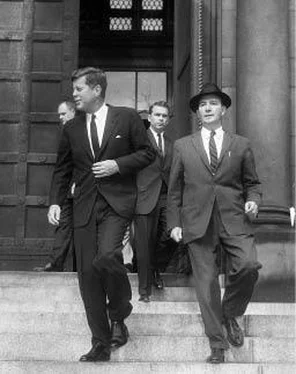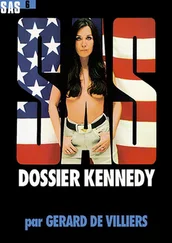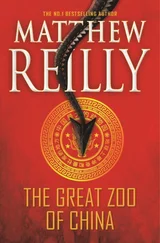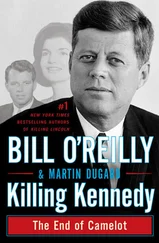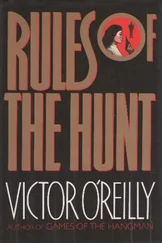O’Reilly, Bill - Killing Kennedy
Здесь есть возможность читать онлайн «O’Reilly, Bill - Killing Kennedy» весь текст электронной книги совершенно бесплатно (целиком полную версию без сокращений). В некоторых случаях можно слушать аудио, скачать через торрент в формате fb2 и присутствует краткое содержание. Год выпуска: 2012, Издательство: Henry Holt and Company, Жанр: Старинная литература, на английском языке. Описание произведения, (предисловие) а так же отзывы посетителей доступны на портале библиотеки ЛибКат.
- Название:Killing Kennedy
- Автор:
- Издательство:Henry Holt and Company
- Жанр:
- Год:2012
- ISBN:нет данных
- Рейтинг книги:5 / 5. Голосов: 1
-
Избранное:Добавить в избранное
- Отзывы:
-
Ваша оценка:
- 100
- 1
- 2
- 3
- 4
- 5
Killing Kennedy: краткое содержание, описание и аннотация
Предлагаем к чтению аннотацию, описание, краткое содержание или предисловие (зависит от того, что написал сам автор книги «Killing Kennedy»). Если вы не нашли необходимую информацию о книге — напишите в комментариях, мы постараемся отыскать её.
Killing Kennedy — читать онлайн бесплатно полную книгу (весь текст) целиком
Ниже представлен текст книги, разбитый по страницам. Система сохранения места последней прочитанной страницы, позволяет с удобством читать онлайн бесплатно книгу «Killing Kennedy», без необходимости каждый раз заново искать на чём Вы остановились. Поставьте закладку, и сможете в любой момент перейти на страницу, на которой закончили чтение.
Интервал:
Закладка:
The question of a Cuban invasion became not a matter of if, but when. In a speech on December 31, 1960, Castro warned America that any landing force would suffer far greater losses than on D-Day. “If they want to invade us and destroy the resistance they will not succeed … because as long as a single man or woman with honor remains[,] there will be resistance,” he railed. A few days later, on January 3, 1961, Castro inflamed the cold war fears of every American by announcing that “Cuba has the right to encourage revolution in Latin America.”
As John Kennedy prepared to take office, roughly one in every nineteen Cubans was a political prisoner. America had severed diplomatic relations with Havana. On January 10, the New York Times ran a front-page story entitled “U.S. Helps Train Anti-Castro Forces at Guatemalan Air-Ground Base,” revealing that commandos were being trained in guerrilla warfare for a planned attack against Cuba. The Times article got the attention of Castro, who responded by ordering the placement of land mines at potential invasion zones.
Inside the Washington Beltway, the CIA and its longtime director, Allen Dulles, have become obsessed with killing Fidel Castro. It will one day be estimated that they concocted more than six hundred plans to assassinate him, including such unorthodox methods as a Mafia-style hit and exploding cigars. On March 11, a year after Dwight Eisenhower authorized the training of rebel forces, President Kennedy was formally presented with CIA plans for a landing. The invasion would take place in daylight, and the location would be a beach code-named Trinidad.
The operation presented Kennedy with a major dilemma. On the one hand, he had run for president on a platform of change, promising the nation a new start after the cold war policies of Dwight Eisenhower. On the other hand, he had fanatically ridiculed Eisenhower about Castro and knew he would look soft on communism if he did nothing to deter the brutal dictator. On April 7 the New York Times ran another front-page story, this one saying that the Cuban rebels were breaking camp and preparing to launch their invasion, prompting Kennedy to remark privately that Castro didn’t need spies in the United States—all he had to do was read the paper.
On April 12 the Communist Party in Guatemala reported to Moscow that the anti-Castro American-sponsored guerrillas would launch their invasion within a matter of days. The Soviets, however, were unsure of the intelligence and didn’t pass along the news to Castro. That very same day, President Kennedy attempted to disavow any American involvement in an invasion, explaining, “There will not be, under any conditions, any intervention in Cuba by United States forces.” Kennedy carefully left out any mention of U.S. financing, training, and planning of a rebel-led assault.
The young American president was attempting a deft diplomatic maneuver, hoping to confront a very real threat by not allowing U.S. military personnel actually to take part. His remarks stretched the truth, but the subtext couldn’t have been clearer: the invasion had become personal. It was no longer about the United States versus Cuba, but about John F. Kennedy versus Fidel Castro, two extremely competitive men battling for ideological control over the Western Hemisphere. In the days to come, each would take the actions of the other as a personal affront. And each man would remain determined to win at all costs.
In Moscow, another brutal dictator, Nikita Khrushchev, who murdered his way up the ladder of Soviet Union politics, was confused: “Why should an elephant be afraid of a mouse?” he wondered. Castro’s ongoing defiance of the United States was keeping his popularity in Cuba very high. Khrushchev understood that even if the Cuban invasion succeeded, the Cuban people would be hard-pressed to accept an American puppet as their new leader. An ensuing guerrilla war against the United States by Castro’s supporters might benefit the Soviet Union by allowing it to establish a military presence in the Western Hemisphere to aid the Cuban dictator.
The bottom line for Khrushchev, of course, had little to do with Castro or Cuba. His goal was world domination. Anything that distracted or in any way diminished the United States was good for the Soviet Union.
* * *
In the days leading up to the scheduled invasion, President Kennedy soured on the CIA’s plan. The Trinidad beach was too much like the Normandy landing zones. The president wanted the invasion to seem as if it had been generated solely by Cuban exiles, thereby masking American involvement. Kennedy wanted an out-of-the-way location where men and supplies could come ashore quietly, then slip into the countryside unnoticed.
The CIA response was to offer a new location, known as Bahia de Cochinos—loosely translated as the “Bay of Pigs.” The landing would take place at night. Unlike the broad beachheads of Trinidad or even Normandy, miles of impenetrable swamp bordered the Bay of Pigs, and few roads led in or out.
Yet, while the United States has a history of successful large-scale amphibious invasions, very few of them have taken place in darkness. There are only two ways the mission can succeed. First, the invasion force will have to get off the beach immediately and take control of the access roads. Second, rebel planes need to take control of the skies, wipe out Castro’s air force, and then gun down Castro’s troops and tanks as they race toward the Bay of Pigs. Without overwhelming airpower, the mission will fail.
Kennedy is a man fond of spy novels—James Bond is a personal favorite—and enchanted by the cloak-and-dagger world of undercover agents. CIA director Alan Dulles, an urbane and wealthy gentleman in his late sixties, epitomizes that aura of secrecy and covert intrigue. He assured Kennedy that the plan would succeed.
The president initially believed him. On April 14, just two days after giving a press conference in which he promised there would be no intervention by U.S. forces in Cuba, Kennedy gave Operation Zapata, as the Bay of Pigs invasion was known, the official go-ahead.
April 14 was a Friday. After launching the invasion, there was nothing for the president to do but wait. So he flew to Glen Ora to be with Jackie and the kids, where he endured a gut-wrenching weekend waiting for news from Cuba. When word finally came, almost none of it was good.
It started on Saturday morning, when eight B-26 bombers piloted by Cuban freedom fighters attacked three Cuban air bases. The original plan called for sixteen planes, but Kennedy had gotten cold feet and ordered the number cut in half.
As a result, the bombings were ineffectual, barely damaging the Cuban air force at all. But Fidel Castro was furious. He immediately turned up the heat on the Kennedy administration by launching public accusations of U.S. involvement in the attack.
Things only got worse after that. A diversionary landing on Saturday was supposed to put roughly 160 anti-Castro Cuban freedom fighters ashore near Guantanamo Bay, but was canceled due to the breakdown of a crucial boat. In a separate incident, Cuban forces arrested a small band of freedom fighters who were already on the island with a large cache of arms.
By Saturday afternoon, the Cuban ambassador to the United Nations was addressing the General Assembly, denouncing the United States for its attack—in response to which Adlai Stevenson, the U.S. ambassador to the UN, repeated JFK’s promise that no American forces would ever wage war in Cuba.
As all this was taking place, John Kennedy hid in the country. Each event so far had been a prelude to the real invasion. But the pressure has already gotten to Kennedy. He canceled a second wave of bombings, even though he knew full well the move might doom the invasion.
Читать дальшеИнтервал:
Закладка:
Похожие книги на «Killing Kennedy»
Представляем Вашему вниманию похожие книги на «Killing Kennedy» списком для выбора. Мы отобрали схожую по названию и смыслу литературу в надежде предоставить читателям больше вариантов отыскать новые, интересные, ещё непрочитанные произведения.
Обсуждение, отзывы о книге «Killing Kennedy» и просто собственные мнения читателей. Оставьте ваши комментарии, напишите, что Вы думаете о произведении, его смысле или главных героях. Укажите что конкретно понравилось, а что нет, и почему Вы так считаете.
